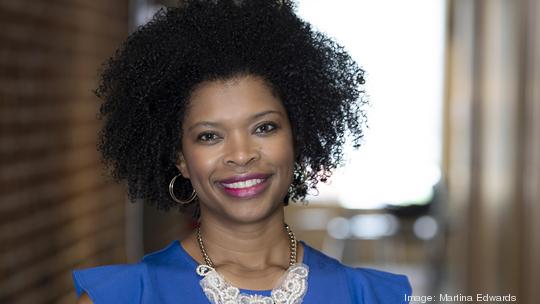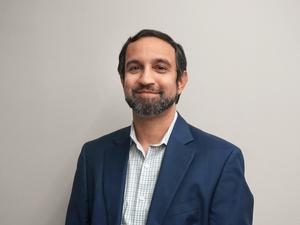
Martina Edwards, the newest venture partner at Zane Venture Fund, has spent her entire career as an investor.
But for Edwards, the work has been about making sure underrepresented entrepreneurs have access to capital in order to create opportunities and economic mobility for more people.
Edwards started her career as the first Black woman broker for Merrill Lynch to work on the floor of the New York Stock Exchange. She worked as director for the Alternative Investment Program at Sponsors for Educational Opportunity, a nonprofit dedicated to providing career and education support for underrepresented people.
Currently, she works as the chief of strategic partnerships at Access to Capital for Entrepreneurs Inc, a Georgia nonprofit committed to helping small businesses in underserved communities or led by underrepresented people.
Now, she’s joining Zane Venture Fund, an Atlanta early-stage investment firm focused on funding diverse founders with tech-enabled solutions in any industry. The firm is about to close its first, $25 million fund.
Atlanta Inno sat down with Edwards to talk about the importance of equitable access to capital and advice to startup founders.
Atlanta Inno: Why do you like investing and why have you made it the focus of your career?
Martina Edwards: My focus in life has been less about trying to get to a certain position or title, but about leveling the playing field, creating more access and opportunity, and opening the doors for others. I hopefully have many more years ahead of me to do that.
I love to be continuously challenged. Venture capital is a space that’s more challenging for me. Overall, all of this is important because it fits into economic opportunities and economic empowerment. All of it supports our economy, which is something that we really need with what’s going on with the pandemic. Having more entrepreneurs that are successful, despite their race, gender, creed, is critically important to support the overall ecosystem — create jobs and generate income for families.
Inno: What are first steps that companies could be taking in order to make sure they are distributing capital equitably?
Edwards: I think that there is a difference between your intentions and the action you take. A lot of large corporations are putting $30 billion or $100 million behind certain causes, but the next stage is accountability and measuring those outcomes. It’s important for those organizations to insert themselves in these ecosystems.
We know that 80% of VC investors are white males, 15% represent Asians. That leaves a very small piece of the pie for women, Black and Latinx individuals. You’ve got implicit and explicit biases that happen. Having diverse teams from the start, that’s really important.
Inno: Why is it important for underrepresented people to have access to capital?
Edwards: At the end of the day, there’s all types of data and statistics that say diversity of thought and experience helps to improve your product or solution. If you are an investor, part of your job is a fiduciary responsibility to generate the highest returns. You’re not fulfilling your fiduciary responsibility if you’re not looking at evaluating every opportunity. You’re leaving money on the table.
We also know that there are historical challenges and discriminatory practices that have happened throughout the years in our country that have hindered certain groups — particularly Black, Latinx and women — from being able to tap into capital sources. Think about the friends and family round, where folks should be able to tap into their immediate network. If you are of a group that has been traditionally marginalized, you may not have had that round.
Inno: What are some things you look for when investing in startups?
Edwards: We’re looking for folks that have scalable solutions that are tech-enabled with a proof of concept or a minimal viable product. We’re looking at the teams to make sure they’re diverse teams from the beginning, because if you start with a diverse team, you have a greater probability of hiring other diverse folks.
Those who are either disrupting a market or complimenting a market. It’s important for them to understand what their revenue model is and if they have a sustainable solution. We’re trying to see where they fit in the overall market opportunity.
Inno: Do you have any pitch advice for founders?
Edwards: I think it’s just going in with confidence, knowing your information and not getting nervous when someone interrupts or stops you in the middle. Know your industry. Know where you fit in the market and be able to articulate that and how you’re going to be able to generate capital in the short and long term.
Inno: Atlanta’s technology ecosystem has been booming the past few months. Why is that happening now and what innovation trends do you see?
Edwards: Atlanta is unlike some cities that you go to where it’s just one manufacturing sector. We have diversity of sectors and diversity of people. A lot of attention has been on the city with everything that’s happening in politics, so I think capital will continue to flow into Atlanta.
There’s a strong ecosystem here. The most important thing is if Atlanta can sustain its growth. Will we have enough capital coming in to sustain these different ideas? My hope is that all of these companies coming out with big announcements will deploy capital, even if it’s outside of their region.
A previous version of this article misstated that Martina Edwards had left her position at Access to Capital for Entrepreneurs. That error has since been corrected.







